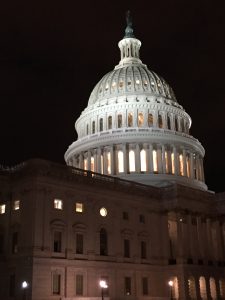The dust has settled on the raucous start to the 118th Congress. Now, the slim Republican House majority under Speaker Kevin McCarthy’s leadership must step up and show the voters it is serious about governing.
The newly adopted rules, under which both sides of the aisle must operate for the next two years, will aid the GOP in its drive to shrink the federal government and increase transparency — but only if it employs those rules to accomplish substantive goals and not simply to score political points against the Biden administration. That is a big “if.”
The media has focused in the past week — during which McCarthy endured numerous attacks from his own colleagues — on the rule that allows a single member of the House to call for a vote to remove him (“vacate the Chair”). This “Sword of Damocles” will be a constant reminder to McCarthy of the fate that befell one of his predecessors – John Boehner – who suffered the wrath of the same GOP right wing that forced McCarthy to lose 14 votes for the speakership before prevailing late Friday night.
Regardless of how many members are required to initiate a vote to remove the Speaker, it still will take a full majority of members – 218 – to accomplish the goal. Hopefully even the most rabid “Never Kevin” Republicans would recognize the chaos such a move would unleash, and hold their fire.
More important procedurally than the vacate-the-chair issue, are those rules that will enable House GOP budget hawks, of which there are many, to force transparency into the often-Byzantine congressional appropriations and budget processes – procedures that include “mandatory” deadlines that congressional leaders on both sides of the aisle and in both houses of Congress have simply ignored.
With the Senate still under firm Democrat control, serious budget cuts and limitations (“riders”) on the administration’s favored funding programs will be extremely difficult to attain.
However, the new House rules (which do not constrain senators on the other side of the Capitol dome) actually afford members time to review spending measures before voting. The rules also permit members to offer far more amendments from the floor than in the recent past.
If these changes are used carefully, then the GOP should not only win some budget cuts, but more broadly demonstrate to the public that its members are actually serious about cutting spending. This is of course if the Republicans in both houses stick together (never a given), and McCarthy’s team uses these powers strategically (also not a given).
This brings us to the matter of a new “Select Subcommittee” within the standing Committee on the Judiciary, which will investigate the “Weaponization of the Federal Government.” The new rules provide the authority for such a subcommittee, but little beyond that general provision.
The effectiveness of this new subcommittee will become apparent only once its members are named and, more importantly, whether McCarthy and the incoming Judiciary Committee Chair, Jim Jordan of Ohio, use it to investigate more than the many personal and low-hanging misdeeds of the Biden Administration.
The name of the new subcommittee, which incorporates the overtly political word “weaponization,” is in itself unfortunate. It is a term with clear partisan overtones which unavoidably conjures images of attacks on the Biden administration’s policy misdeeds.
The reality is that serious federal abuses of civil liberties long predate the current administration. Americans should robustly enjoy privacy and other civil liberties, which presidencies by both major political parties have deeply eroded over many years. These abuses have become systemic and deeply entrenched in agencies from the FBI to the IRS and HHS.
If, for example, the new Select Subcommittee centers its investigations on narrow, partisan activities involving Biden and his family, rather than undertaking the harder but far more consequential task of uncovering why and how federal agencies, including but certainly not limited to the FBI and the CIA, have grown to wield virtually unchecked and obvious unconstitutional powers, the GOP will have missed an historic opportunity to at long last begin reversing that truly terrible trend.
Bob Barr represented Georgia’s Seventh District in the U.S. House of Representatives from 1995 to 2003. He served as the United States Attorney in Atlanta from 1986 to 1990 and was an official with the CIA in the 1970s. He now practices law in Atlanta, Georgia and serves as head of Liberty Guard. Originally published here. Reproduced with permission.
